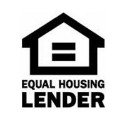Google 5-Star Rated Direct Hard Money Lender
Types of Loans for Investment Property
Real estate fills an important role in many investment portfolios. It can be a useful hedge against inflation, and there are many tax incentives for investing in real property. And, more than most other investments, real estate offers opportunities to leverage investment with investment property loans.
Some investors will buy and hold land for future development. Others prefer to fix and flip, realizing the potential in previously neglected properties.
There are investors who will buy a home for an elderly relative, enjoying appreciation when they eventually sell the property. Others invest in rental properties to secure a passive income stream that lasts for years, or even decades.
But there is a significant downside to investing in real estate. Although it is possible to buy shares in real estate investment trusts, owning a property outright, using all of your investment acumen and taking full advantage of a rising market, requires a major investment of capital.
Most real estate investors don‘t finance their purchases entirely with their own funds. They rely on investment property loans.
There are three major kinds of loans for investing in real estate. There are hard money loans (often known as fix and flip loans), bank secured loans (including home equity loans), and private money loans. We will mention some other kinds of funding briefly.
We will discuss each of these types of loans in detail. But first, let’s review the definition of an investment property.
What Is An Investment Property?
Investment property is real estate purchased with the intent of realizing a gain on its future sale, a stream of rental income, or both. Individuals, partnerships, and corporations may own investment properties.
The definition of an investment property is straightforward except in the case of second homes.
It’s important to understand that your investment property is not a second home.
The IRS rule is that for a property to be your second home, you must live in it at least 14 days a year. Also, you must live in it at least 10 percent as many days as you rent it out.
Here are some examples of how that works:
- If you use a property for just one week in the summer (7 days), and you rent it out for a month, it is not your second home. The reason for this is that you did not stay in it for 14 days.
- If you spend the whole month of July (31 days) in your mountain cabin, and you rent it out for August and then close it up for the winter, it can be treated as a second home. You are staying in for more than 14 days and for more than 10 percent of the total days you rent it out.
- If you stay in your beachside condo for 30 days every summer, and offer it on AirBnB the other 335 days of the year, it is not a second home. That’s because you do not stay in it 10 percent as many days as you rent it out.
Why does this definition make a difference?
- You have to report rental income on your federal income tax return, unless you are renting out a second home for less than 15 days a year.
- You can deduct at least part of your maintenance expenses from your rental income. You prorate the deduction. For instance, if you live in the property 25 percent of the time and you rent it out 75 percent of the time, you can deduct 75 percent of your maintenance expenses from your rental income on your tax return.
- You can’t deduct home mortgage interest on a second home, but you can deduct home mortgage interest on an investment property. You can also take depreciation on an investment property, although you can’t take depreciation on your investment property. You have to recapture depreciation on your investment property when you sell it, but it’s recaptured at (lower) capital gains rates and written off at (higher) income tax rates.
There are also major differences in financing a second home and financing an investment property.
You can get a VA loan for a second home. You can’t get a VA loan for investment property (although you can convert it after you have lived there).
You will usually have to pay 20 percent down to get a mortgage on a second home. Lenders usually require 30 percent down to get a loan on investment property.
Future rental income doesn’t figure into your creditworthiness for a loan for either a second home or an investment property. Banks usually look at how easily you can make the payments on an investment property from your other income, and they expect higher credit scores and better credit history before they make a loan.
But you don’t necessarily have to get your funding for an investment property from a bank.
Securing Funding For An Investment Property
There are several types of loans for investment properties. Different kinds of loans have different lending criteria. Choosing the right kind of financing makes a huge difference in the profitability of your investment, so it is important to keep these basic principles in mind:
- You can finance an investment property with the equity in your home.
- You can use a gift of funds to make a downpayment, but it has to be documented as a gift.
- It’s not unusual to borrow money to fix and flip distressed properties. You are probably aware of this practice as flipping.
- Hard money loans close faster and have looser lending requirements than conventional loans. It is often possible to close a hard money loan in just a few days. This allows you to take advantage of competitive opportunities in the real estate market. You can’t get hard money loans at banks.
Hard Money Loans
If you are looking to fix and flip, a hard money loan may be your best option.
Hard-money loans are short-term loans. They are designed to give you the capital to rehabilitate real estate so you can get it on the market for a profit.
Both residential hard-money lenders and commercial hard-money lenders make loans come due in two to 12 months. They are easier to get than conventional bank financing, but they also come at a higher interest rate. Your experience with the lender will affect your rate.
Hard-money borrowers need to understand that hard-money loans don’t finance 100 percent of the cost of your fix and flip. There are two different ratios that hard money lenders use to calculate how much money they will lend on your project, LTV and ARV.
LTV, or loan to value, is used to make a loan for a percentage of the current value of the property you want to fix and flip. The LTV is usually 65 to 80 percent of current value.
ARV, or after repair value, is used to make a loan for the appraised value of the property after you have renovated it. The ARV is usually 70 percent of the appraised value.
Lending rules for hard-money loans vary from state to state.Source Capital is a premier source of information about the hard-money loans that may be available to you where you live.
Bank Secured Loans
A bank-secured loan is a loan secured by property you already have. It’s not a loan on the property you intend to buy as an investment.
For instance, a bank might be willing to lend you the money you need to buy an investment property with your equity in your home as collateral. Or it might secure your loan with another property you already own.
If you don’t make your payments on your investment property loan, the bank may take the property you put up as collateral. More often, however, you can work out refinancing at a higher interest rate, at least once or twice, although this is not guaranteed.
As we mentioned earlier, bank secured loans don’t cover the entire purchase price of your investment property. You will probably still have to come up with a down payment of 30 percent. You will also need to be able to show the bank that you can make your payments without any income from your investment.
Private Money Loans
Private money loans are exactly what they sound like. They are (usually) unregulated loans from private individuals to investors that are negotiated without following the rules that apply to banks.
Banks are required to take care to lend only to those individuals they are reasonably sure can pay them back. Private lenders may take risks that other lenders will not. But they usually charge considerably more interest, and they always have an exit strategy. Your private lender may sell you a loan to another investor for aggressive enforcement of its terms.
It’s important to know who you are dealing with. You don’t want your project to collapse because your private lender provides enough money to start your project, but not enough to finish it.
Other Kinds of Funding
Some real estate investors get their financing through crowd funding. Crowdfunding sites, however, usually do not provide 100 percent of financing.
A few investors are able to finance their projects through unsecured lines of credit, but the interest rates on this kind of financing take a considerable bite out of profits. Lines of credit are completely inappropriate for buying long-term investments.
What type of loan is best for investment property? Let’s take a closer look at some frequently asked questions.
Types Of Loans For Investment Property: FAQ
Is it harder to get a mortgage for an investment property?
It’s considerably harder to get a mortgage for an investment property than it is to get a mortgage for a residential property. Most lenders want rock-solid documentation of your income, and expect you to have held your current job for at least two years. They will also look for evidence that your income exceeds your expenses, and a high credit score.
It can be tempting to try to get a second-home loan for your investment property. Don’t do this. If your lender finds out that you misrepresented your intentions in getting your loan, you may be found to be in default.
Can you use a conventional loan to buy an investment property?
You can get conventional bank financing for investment properties, but you will have a higher down payment and have to meet stricter qualifications.
How much will the bank lend me for an investment property?
If you qualify for a bank loan, you are most likely to be approved for 70 percent of the purchase price. If you are looking to fix and flip, a bank loan may not be the best type of loan for investment property.
Final Thoughts
Looking for investment funding in California, Minnesota, Arizona, or Texas? Source Capital can give you an answer in minutes! Call us at (888) 250-6794 or apply now!









Leave a Reply
Want to join the discussion?Feel free to contribute!